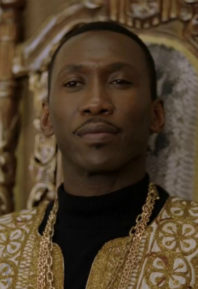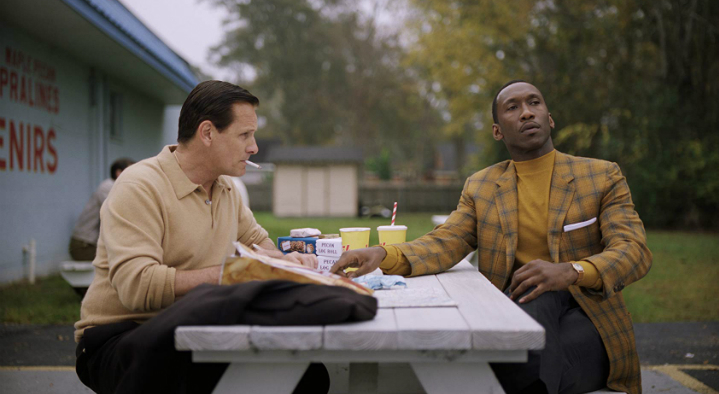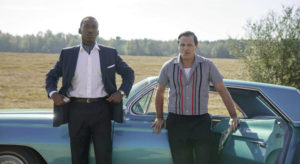
Tony Lip (Viggo Mortensen) and Don Shirley (Mahershala Ali) both live in New York, but they exist in different worlds. Tony is a tough guy from the Bronx, foul-mouthed and ready to throw down anytime, anywhere. Don first shows up onscreen like an ethereal being. He’s eloquent, refined, and prone to world-class eye-rolls when dealing with the narrow-minded.
You see where Green Book wants to go two hours before it arrives. It’s the type of feel-good, odd couple, road trip movie Hollywood has cranked out for decades. But director Peter Farrelly, a filmmaker known for churning out cringe-comedies, has a few tricks up his sleeve. Headlined by two Oscar-worthy performances, Farrelly strikes the perfect balance between platonic rom-com and social commentary and delivers a film that elevates itself above the genre’s tired conventions.
Tony “Lip” Vallelonga is the Copacabana’s version of Ray Donovan; a tough guy and fast-talker adept at solving problems with his wits or his fists. Tony needs steady work after the Copa shuts down for renovations. Don Shirley, a famous black jazz pianist prepping for a tour through the south, recruits Tony as his driver/hired muscle. As a black man in 1962, the question of Don running into trouble isn’t if, it’s when. There’s nobody better equipped to keep Don safe than Tony. Although Tony has no love for blacks, he can’t pass up the $125 a week salary. On their southern tour they confront bigotry, deal with each other’s quirks, and form an unlikely friendship.
I can’t overstate the difficulty of what Farrelly pulls off with this film. The way he manages the weighty themes, comedic tone, and pitch-perfect performances is like walking a tightrope backwards while juggling. That the filmmaker makes the final product look so seamless is an impressive feat. Hollywood loves churning out feel-good stories about America’s racial tension, and they often pander to the type of white audience that declares themselves woke for sitting through The Help. Though Green Book isn’t a deep film, it leaves an impression because it feels earnest and packs a soulful grit.
Green Book’s protagonist, Tony, should be tough to root for. He is a prejudiced meathead whose proud of his reputation as a bullshitter. He even throws away a couple of glasses after coloured repairman have a drink in his kitchen. There is no reason to like someone with this behaviour, but Mortensen and Farrelly transform him into an endearing oaf. More on this in a moment.
Don, though a sympathetic character, is also a tough role to pull off. Most odd couple pairings unite the carefree slob and the uptight, nagging, condescending partner. Pay close attention, and you see Don isn’t any of those things. He’s not uptight, he’s guarded. Blacks and whites have shunned Don his entire life so he became an island unto himself. But he pines for those walls to crumble. Don isn’t naggy or condescending either. He corrects, instructs, and encourages Tony to be better; a better employee, a better husband, a better all-around man.
Although Tony fray’s Don’s patience, he never attacks Tony’s dignity. In fact, Green Book doesn’t make jokes at the characters’ expenses. Instead, it spotlights the absurdity of the circumstances they find themselves in. Most of the narrow-minded whites the guys encounter aren’t evil, they just go along with the only way of life they know. Race and the rules governing it are arbitrary – hence the last 50 years of social progress – and Farrelly finds humour poking holes in antiquated social norms.
We get behind an oaf like Tony because he’s not a bad person at his core. He’s a product of his environment, and his upbringing and surroundings shade his personality. His world doesn’t extend beyond the Bronx, and his beliefs fall in line with the shared values of his tight-knit Italian community. Don pushes and prods Tony to look past the Bronx’s concrete and steel horizons. Don only escaped his community because he’s exceptionally talented (putting on shows at age 3), and it upsets him that a white man, with all his privilege, chooses to close himself off. Had Tony been a true bigot, he would dismiss the lessons he learns on his travels. But given his exposure to new cities, new people, and new perspectives, Tony, a stand for close-minded Americans, finally comes around.
Green Book is the best-case scenario for a big studio feel-good movie: lovable characters, a story that hooks you and reels you in, and heavy themes that challenge viewers without taking them to a dark place. Farrelly is on top of his game right now, and he’s produced a film guaranteed to charm audiences this holiday season. With its two stellar performances and gripping account of racial intolerance, Green Book functions as a historical account, a conversation starter, and a fantastic film.
- Release Date: 11/16/2018



